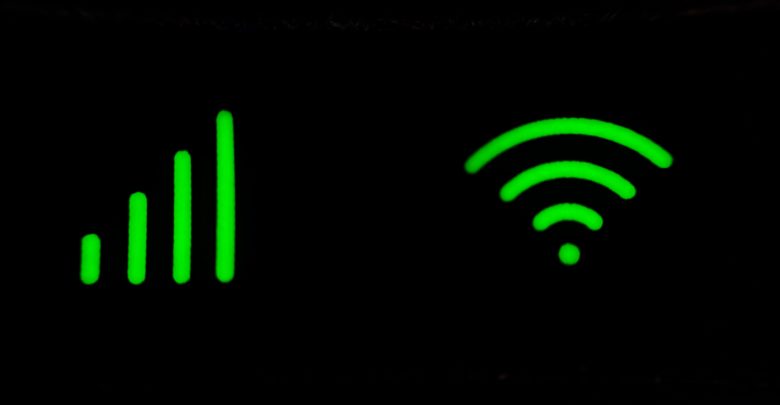Intellectual Property
Examining Antitrust: T-Mobile and Sprint Merger under the scanner

The buzzword for competition analysts around the globe in recent times has been mergers. Among others, a large telecom merger has been doing rounds in the United States of America. T-Mobile and Sprint are amongst the Big Four (the other two being AT&T and Verizon) of the telecom industry and their controversial $30 billion merger deal have raised a lot of doubts with regards to the future of competition in the industry.
This deal, which had been blocked once in 2014[1], was approved by the Federal Communications Commission[2] and the Department of Justice (DoJ), the competition agency of the USA, last year. A complicated scheme was formulated to mitigate the problems regarding competition in the telecom sector, the job-erosion impact of the deal and to offset the competitive harm of the deal. However, this did not bear fruit as last year saw an abundance in complaints from numerous States through their Attorneys General against the deal.[3] Nevertheless, February 2020 saw the ruling of Judge Victor Marrero of the District Court in New York, who rejected the contentions of the complainants from different states while insisting that eliminating one of just four major wireless carriers in the U.S was “not reasonably likely to substantially lessen competition” in the industry.[4]
The situation in the U.S has raised a lot of doubts with respect to the future of competition in our country. With this judgment, India needs to be wary of large-scale mergers and its scrutiny of the same.
The Anti-Competitive effects and the Scheme of DoJ
The DoJ approved the merger with a scheme, which laid down certain requirements in order to remove any doubts of competition harms arising out of the deal.[5] Specifically, it asked for the divestiture of certain spectrums as well as Sprint’s prepaid business to Dish Network Corp. and for T-Mobile to provide Dish with “robust access to the T-Mobile network for a period of 7 years while Dish builds out its own 5G network,” in order to remove concerns for the elimination of competition.[6]
However, this deal means nothing in the light of the other concerns it raises, as it does not provide verifiable, merger-related benefits to the consumers which were attainable in the non-merger situation also.
The competition concerns that the T-Mobile-Sprint deal has raised are plenty. First, with the competitors being reduced from four major players to three, the consolidated competition would serve to increase the possibility of tacit collusion in the market leading to higher prices for the consumers.[7] Further, with the new T-Mobile coming into the picture, it would have the incentive to raise prices. This assumption is based on the estimates by economic analysts[8] and the experience of other countries.[9] This is similar to cartelization in India, which includes the attempt to control prices. In India, S. 3 of the Competition Act, 2002 (the “Act”) lays down conditions that might have an Appreciable Adverse Effect on Competition (AAEC), to be anti-competitive. Thus, price determination and collusive bidding are anti-competitive as per the abovementioned section.[10]
Secondly, since the merger is between the top retail mobile telecommunication servers, it will have the potential to substantially lessen the competition for other competitors, thus being in violation of the Clayton Act[11], which addresses practices not clearly prohibited under the Sherman Act, such as mergers where the effect “may be substantially to lessen competition, or to create a monopoly.”[12] It would further increase the concentration in the market which is measured more than the necessary Herfindahl-Hirschman Index (HHI) levels, violating the U.S. Department of Justice and Federal Trade Commission 2010 Horizontal Merger Guidelines (the “Horizontal Merger Guidelines”). The Indian authorities, on the other hand, look into the relevant market(s) in order to determine the violations under the Act which does not, in itself become a cause for anti-competitive effect on the competition.
Thirdly, even after looking at the scheme of the DoJ, the attempt at making Dish the new competitor is fraught with risk which will surely doom it to failure, according to the experts.[13] This merger would lead to significant barriers to entry for the new competitors. It comes with the reason that subscribers desire nationwide coverage and a new entrant would require a nationwide spectrum and network in order to compete, which would take substantial time. The extent of barriers to entry in the market is a determinant of the effect of the combination in India, as per section 20(4) of the Act.
Lastly, the parties claim efficiencies such as the deployment of 5G services in the country. However, the efficiency defense claimed by the parties does not stand ground. This is because the decision for the merger was not backed by the said model. Further, a merger is not a requirement for the said deployment of 5G services as the companies have been working on the same previously, having the wide individual potential to produce the same. Therefore, it does not outweigh the anticompetitive effects. Similar is the Indian Act which provides the efficiency defense under the proviso to s. 3 which removes the concerns of appreciable adverse effects if the deal increases efficiency in production, supply, or provision of services.[14]
The Judgment
Despite the distress with respect to the deal, it got the approval of the Federal Judge whose plate was filled with the numerous complaints by various States. Judge Victor Marrero has come under fire for the surprising judgment, which exhibited that the data assayed by various renowned analysts and the harmful effects put forward by the 10 state attorneys general weren’t worth the scrutiny.[15] The judgment in its crux puts a lot of faith in the deal put forth by the DoJ as well as the capabilities of the likely fourth competitor, Dish which is seen to be the new face for 5G, to assure that the future would be nearly perfect as no harm to the competition would exist. It ensures that Dish would come in as a “disruptive maverick in the markets, offering low prices and high-quality services.”[16] It concludes that the Plaintiff state’s contentions are all useless because “the New T-Mobile would use the advantage by cutting prices to take market share from its biggest competitors,” thus giving in to fake promises.
The deal which now stands rubber-stamped by all the required authorities has a huge potential of eliminating around 20,000 jobs as per the economists.[17] Experts have shot down the claims of 5G deployment and other promising claims.[18] The end result, as the deal stands now seems bad for the consumers and the competition.
Current Situation in India
While the judgment has raised a lot of eyebrows in the U.S., India is facing a similar situation with its recent Jio-Facebook deal. The judgment is an eye-opener for the competition authorities in India, which are scrutinizing the recent merger deal surfaced between the telecom giant Reliance Jio and Facebook.[19] Although the Jio-FB deal is way different in terms of markets, the concerns it raises intersect the concerns of the T-Mobile-Sprint merger deal.
Just like these telecoms in the US, Jio and Facebook have dominant positions in telecom and social networking respectively. When combined, they have a huge potential to leverage their dominance in the e-commerce market. With a large user base, it can abuse its position by increasing the prices[20], leaving the consumers with no option because of the wide arena of services being provided (super app). With Jio Mart coming into the picture, there is a possibility of creating a monopoly in the online groceries because with a significant number of combined users, other platforms would be unable to compete. Further, with greater access to data and amplified network effects, the deal would serve as a barrier to entry for other entities, who, like the other entrants in the T-Mobile-Sprint case would need a substantial number of years to establish their reach. Moreover, the anticipated exit of Vodafone-Idea, which has come under the wrath of the Supreme Court because of its long dues[21], will reduce the major telecoms in India, raising concerns of the “tacit collusion” among major telecoms, whose market share shall increase, leading to higher prices for the consumers.[22] However, the giants can take the defense of efficiency, in a claim to provide better services, which can outweigh the anti-competitive effects.
Both the mergers have raised similar concerns about anticompetitive effects on the market. However, the US merger having been officially approved, it will be interesting to see how the Competition Commission of India scrutinizes the big data-driven merger(s) in the light of the current scenario and its lack of data-related competition analysis strategies.
[1] Michael J. De La Merced, Sprint and SoftBank End Their Pursuit of a T-Mobile Merger, N.Y. Times, Aug. 5, 2014, https://dealbook.nytimes.com/2014/08/05/sprint-and-softbank-said-to-abandon-bid-for-t-mobile-us/?mtrref=www.vice.com&gwh=52EEED243B7C591348485A089672218A&gwt=pay&assetType=REGIWALL.
[2] Federal Communications Commission, FCC Approves T-Mobile/Sprint Transaction with Conditions, Nov. 5, 2019, https://www.fcc.gov/document/fcc-approves-t-mobilesprint-transaction-conditions.
[3] Klint Finley, State Attorneys General to sue to block T-Mobile/Sprint Merger, Wired, Nov. 6, 2019, https://www.wired.com/story/state-attorneys-general-sue-block-t-mobilesprint-merger/.
[4] Karl Bode, T-Mobile Sprint Merger Just Got Rubber Stamped and we all lose, Vice, Feb. 11, 2020, https://www.vice.com/en_us/article/4agnan/the-t-mobile-sprint-merger-just-got-rubber-stamped-and-we-all-lose.
[5] Department of Justice, Justice Department Settles with T-Mobile and Sprint in their Proposed Merger by Requiring a package of divestitures to Dish, July 6, 2019, https://www.justice.gov/opa/pr/justice-department-settles-t-mobile-and-sprint-their-proposed-merger-requiring-package.
[6] Id.
[7] State of New York & ors. v. Deutsche Telecom & ors, Complaint, https://oag.ca.gov/system/files/attachments/press-docs/T-Mobile%20Sprint%20amended%20complaint.pdf
[8] Edward C. Baig, Sprint and T-Mobile merger approved by federal judge. Here’s whar is means for the consumers, USA Today, Feb. 11, 2020 https://www.usatoday.com/story/tech/2020/02/11/sprint-t-mobile-merger-prices-go-up-what-means-consumers/4721902002/.
[9] Will Goodbody, Takeover of O2 by Three led to higher prices – study, RTE, July 3, 2018, https://www.rte.ie/news/business/2018/0703/976009-mobile-user-prices/; Karl Bode, Canadians pay the highest rates for Wireless data, and the US is about to follow suit TechDirt, Jan. 29, 2019, https://www.techdirt.com/articles/20190123/08265841448/canadians-pay-highest-rates-wireless-data-us-is-about-to-follow-suit.shtml.
[10] The Competition Act, 2002 (12 of 2003), s. 3(3)(a) & (d) (India).
[11] Clayton Act of 1914, 15 U.S.C §18.
[12] Federal Trade Commission, The Antitrust Laws, Guide to Antitrust Laws, https://www.ftc.gov/tips-advice/competition-guidance/guide-antitrust-laws/antitrust-laws (last accessed Jun. 20, 2020).
[13] Nicholas Economides et al. Assessing DOJ’s Proposed Remedy in Sprint/T-Mobile: Can Ex Ante Competitive Conditions in Wireless Markets be Restored? Net Inst. W.P., Oct. 2019, netinst.org/Economides_19-14.pdf.
[14] The Competition Act, 2002 (12 of 2003), s. 3 (India).
[15] Nilay Patel, The Court Let T-Mobile buy Sprint because Sprint completely sucks, The Verge, Feb. 12, 2020 https://www.theverge.com/2020/2/12/21134278/sprint-tmobile-merger-court-ruling-opinion-decision-explainer-carriers-antitrust.
[16] State of New York et al. v. Deutsche Telekom AG et al, Decision and Order, Case 1:19-cv-05434-VM-RWL, p. 109, https://cdn.vox-cdn.com/uploads/chorus_asset/file/19712093/show_temp__6_.pdf.
[17] Mark Davis, Could a Sprint Merger with T-Mobile kill more jobs than Sprint has, Chicago Tribune, Oct 10, 2017, https://www.chicagotribune.com/business/ct-biz-sprint-t-mobile-merger-jobs-20171010-story.html.
[18] Jon Brodkin, T-Mobile and Sprint don’t need to merge for 5G – they said so two months ago, ARS Technica, May 1, 2018, https://arstechnica.com/tech-policy/2018/05/t-mobile-and-sprint-dont-need-to-merge-for-5g-they-said-so-two-months-ago/.
[19] Shruti Srivastav, Facebook’s Deal with Jio under Indian Antitrust Review, Bloomberg, June 17, 2020, https://www.bloomberg.com/news/articles/2020-06-17/facebook-s-deal-with-jio-under-indian-antitrust-review.
[20] The Competition Act, 2002 (12 of 2003), s. 4 (India).
[21] Shruti Mahajan, Submit books of accounts, financial documents of last ten years: Supreme Court to Telecom Companies, Bar and Bench, Jun. 18, 2020, https://www.barandbench.com/news/litigation/agr-submit-books-of-accounts-financial-documents-of-last-ten-years-supreme-court-to-telecom-companies-govt-to-withdraw-demand-from-psus.
[22] Kalyan Parbat, Voda Idea’s exit may increase Airtel, Jio’s opex & capex: Analysts, The Economic Times, Feb. 19, 2020, https://economictimes.indiatimes.com/industry/telecom/telecom-news/vodafone-ideas-exit-may-increase-airtel-jios-opex-capex-analysts/articleshow/74183386.cms?from=mdr.





